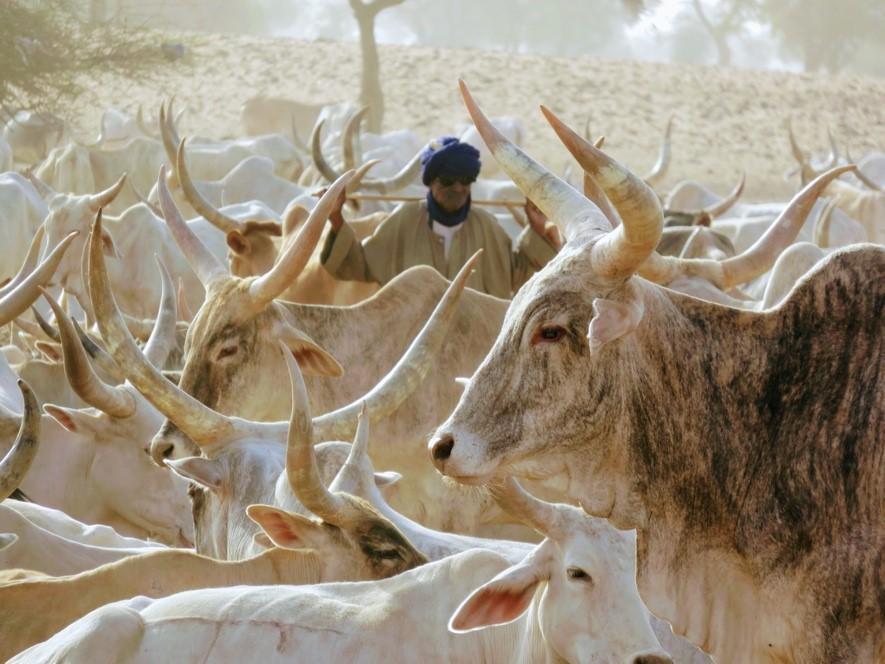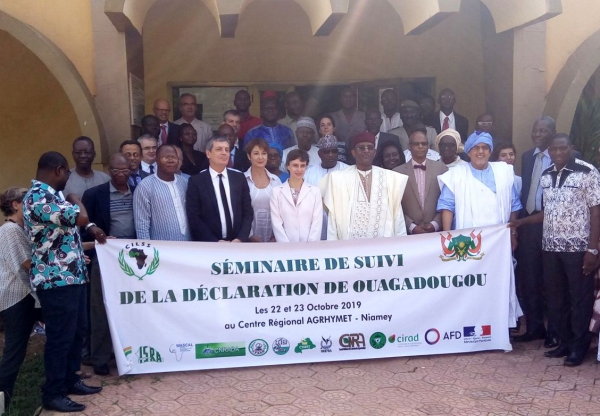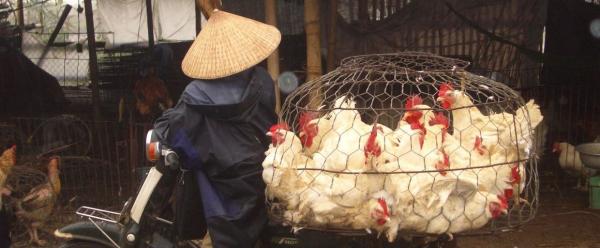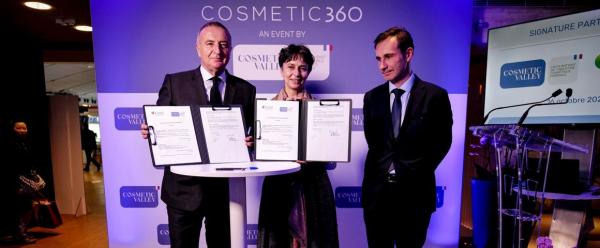Institutional news 21 January 2026
- Home
- Press area
- Press releases
- Ouagadougou Declaration food security Sahel
The roadmap for the Ouagadougou Declaration has been adopted

Livestock farmer in the Sahel © S. Taugourdeau, CIRAD
"The dynamic triggered by the signing of the Ouagadougou Declaration in September 2018 marked a shared wish to promote collective intelligence within the Sahel region, with agricultural research organizations playing an active role", says CIRAD Director General in charge of Research and Strategy Elisabeth Claverie de Saint Martin. The aim is to consolidate partnerships between specialist and research players in the Sahel so as to apply the results of research in partnership, step up efforts in terms of innovation by listening to the whole range of stakeholders, and scale up the impacts for beneficiary populations, with a view to achieving the goals of sustainable rural development and food security in the Sahel.
"The aim of the seminar in late October was to frame the debate on the Declaration's priorities and open it up to the knowledge community, particularly farmers' organizations and NGOs", CIRAD Regional Director for West Africa (Dry Zone) Sylvie Lewicki explains (see list of participants below*). Those attending were able to take stock of implementation of the Ouagadougou Declaration in terms of projects and lobbying operations, one year on.
Of the many projects presented, in line with the eight priorities of the Ouagadougou Declaration, six are the result of the EU DeSIRA initiative (Development-Smart Innovation through Research in Agriculture). The initiative set out to support agriculture and food systems in the global South through innovation, to make them more resilient to the effects of climate change (see box below).
"The lobbying operations conducted have resulted in the Ouagadougou Declaration being quoted in a release from the G7 concerning the creation of decent jobs for young rural inhabitants in the Sahel" , Sylvie Lewicki adds. "The importance of developing a territorial approach, the first of the eight priorities, is also mentioned in the release."
The seminar participants identified a range of convergences and synergies, and the means by which the various stakeholders will implement the Ouagadougou Declaration. They then agreed on the joint steps to be taken in the coming year.
A roadmap was adopted, confirming the commitment of the signatories and their partners to:
1. pool the experiences of research projects in highly insecure zones, so as to improve practices;
2. develop a collective plea in favour of biodiversity with a view to the major international events scheduled for the coming year, to ensure that the Sahel can make itself heard;
3. progress together, to ensure greater efficacy in addressing emerging issues in the Sahel and boost the attractiveness of agriculture and food systems, particularly to improve job prospects for women and young people (making work less arduous, mechanization, ICT).
"We have now adopted your slogan, "there's strength in numbers", said Professor Zakari Moussa Ousmane, Dean of Dan Dicko Dankoulodo de Maradi University, Niger (UDDM) at the end of the seminar, which was opened by Albadé Abouba, Minister of State, Minister of Agriculture and Livestock in Niger.
The seminar received financial support from the cultural services of the French Embassies in the G5 Sahel countries, and from AFD.
* In addition to the signatories of the Ouagadougou Declaration:
- Centre national de la recherche scientifique et technologique (CNRST), Burkina Faso
- West and Central African Council for Agricultural research and Development (WECARD)
- Comité permanent inter-Etats de lutte contre la sécheresse dans le Sahel (CILSS)
- Centre national de recherche agronomique et de développement agricole (CNRADA), Mauritania
- Conseil national de la recherche agronomique et de développement agricole (CNRA), Niger
- Institut d’économie rurale (IER), Mali (excused)
- Institut de l’environnement et recherches agricoles (INERA), Burkina Faso
- Institut national de recherche agronomique du Niger (INRAN)
- Institut sénégalais de recherches agricoles (ISRA, Senegal
- Institut tchadien de recherche agronomique pour le développement (ITRAD), Chad
- West African Science Service Center on Climate Change and Adapted Land Use (WASCAL)
- French Agricultural Research Centre for International Development (CIRAD)
The seminar was attended by:
- farmers' organizations and NGOs, networks: food crisis prevention networks, ROPPA, SOS Sahel, the Groupe de travail sur les transitions agro-écologiques (GTAE) represented by CARI, and the Alliance pour l'Agro-écologie en Afrique de l'Ouest (3AO) ;
- research organizations: AfricaRice, IRD, ICRISAT, Dan Dicko Dankoulolo de Maradi University (UDDM) and Diffa University (Niger), RACINES federative research structure, CAMES;
- institutional partners: AFD, COCAC (French Embassy), Burkina Faso, COCAC (French Embassy), Niger, UEMOA, G5 Secretariat.
DeSIRA initiativeThe DeSIRA initiative (Development Smart Innovation through Research in Agriculture) was launched at the Paris One Planet Summit in December 2018. The initiative, led by the European Commission Directorate-General for International Cooperation and Development (DG DEVCO), set out to support agriculture and food systems in the global South through innovation, to make them more resilient to the effects of climate change. CIRAD and its partners in the Sahel are involved in six projects covered by the DeSIRA initiative:
|




























